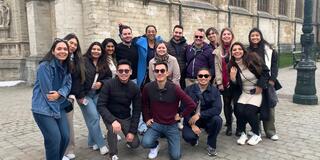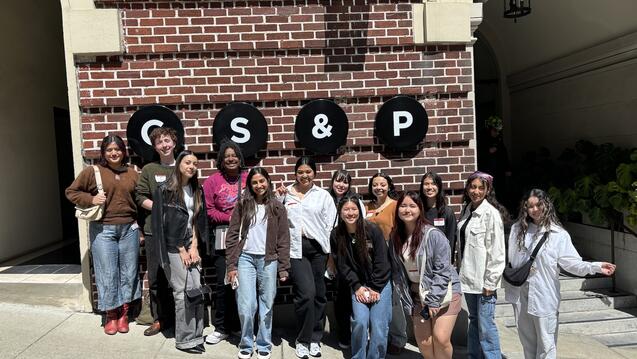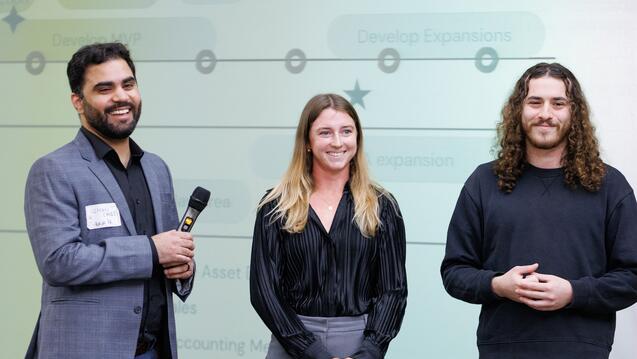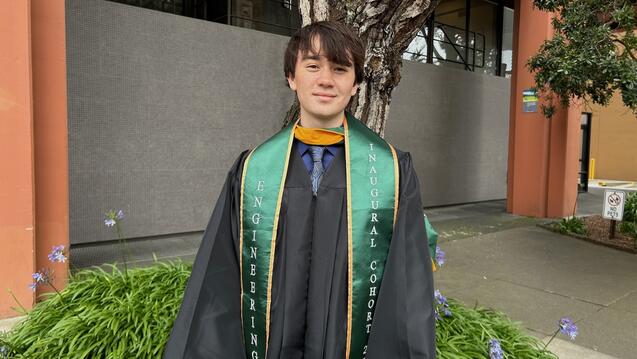In Overseas Immersion, Management Students Learn Consulting on the Fly
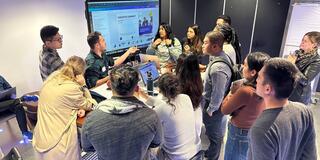
“Storm, form, norm, perform — that’s the approach for consulting,” said Arielle Davenport MBA ’25.
On a working immersion in the Netherlands in March, 16 graduate students from the School of Management visited eight organizations in eight days, practicing speed consulting as they went.
At each stop, students from the MBA and MPA programs listened to the client describe its challenges. The students then brainstormed, formed teams, “normed” or tested their ideas, and then pitched their solutions to the client — all in about two hours.
At Rijkswaterstaat, the national agency for roadways and waterways, the USF group talked with government representatives “about ride sharing, electric vehicles, and how to use AI in transit such as driverless cars,” Eric Medrano MBA ’24 said.
At Dignita, a restaurant chain that employs survivors of human trafficking, the students recommended that Dignita expand its reach and boost its revenue by catering government events in The Hague.
The clients listened. “Rijkswaterstaat presented our students’ recommendations to their top management, and top management turned around and pitched policy changes to the European Commission,” said Billy Riggs, the professor of public administration, management, and engineering who led the immersion. “Dignita shifted its focus to target government employees.”
The USF students brought what Riggs called a “San Francisco spirit” to each pitch. “They’re confident enough to speak up, humble enough to accept criticism, and brave enough to fail. It’s all about rough ideas and rough drafts and vulnerability: Better to be approximately right than precisely wrong.”
What did the students learn from their immersion?
Eric Medrano: “I learned that Europe is far more receptive to the idea of a carless city, and each city we visited is far more pedestrian- and cyclist-friendly than any city I’ve seen in the U.S.”
Arielle Davenport: “I learned that I can create ideas — good ideas — in a fast-paced environment. I never knew I could think that fast. It gave me confidence. Also, I learned how to hear European feedback: They’re honest and they tell it to you straight. Finally, I learned how and when to stop work. ‘Take a break’ is not something I often hear in America.”
Alexandria Aguilar MBA ’25: “This trip brought a sense of harmony. This was most apparent at Rijkswaterstaat. As chaotic as it seemed to pull together one presentation with input from all 16 classmates, it demonstrated how well everyone could adapt and collaborate.”
Neesha Mehta MBA ’25: “One thing that jumped out at me is how far down the road we are with technology. I think at times we forget we are right next to Silicon Valley, the technology and innovation hub of the world. I felt our knowledge in technology or business strategy was very helpful to every company we worked with.”
On each project with each client, the students rose to the challenge, Riggs said. “They served a cause that’s bigger than they are — it’s a Jesuit thing.”
